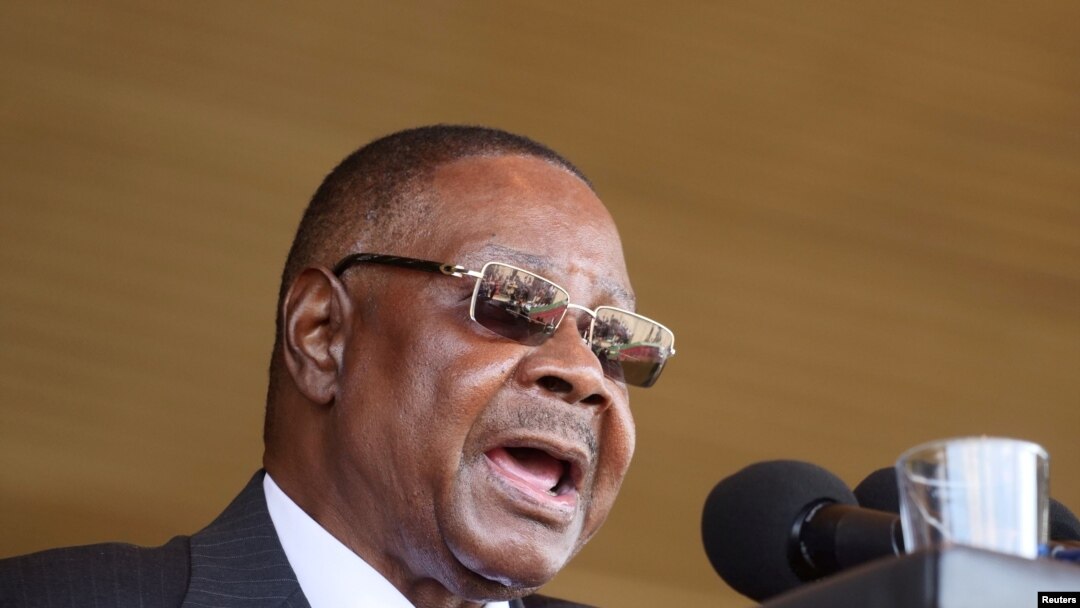Malawi police have rearrested former President Peter Mutharika’s bodyguard, this time on a charge of attempted murder.
The government said Friday’s arrest of Norman Chisale was part of an initiative to fight corruption left over from the Mutharika administration. The Democratic Progressive Party (DPP), now in opposition, said the fresh charge was politically motivated.
Chisale was arrested Tuesday on fraud and money-laundering charges related to a cement import investigation. A court in Lilongwe granted him bail. His second arrest was on an attempted-murder charge for allegedly shooting a woman in the knee two months ago in Blantyre.
Chisale's attorney, Chance Gondwe, said the second arrest amounted to political persecution.
“Actually, it was an accidental shooting," Gondwe said. "It was nothing like attempted murder. There were attackers on the accused person on that particular day, and in trying to defend himself, the bullet ended upon the knee of the victim.”
Gondwe said some people just wanted to victimize Chisale.
The government said the arrests were part of an anti-corruption crackdown initiated after Mutharika lost the June 23 presidential election and new President Lazarus Chakwera took office.
Several prominent figures have been arrested since then, mostly for crimes allegedly committed during Mutharika’s administration.
They include Jomo Osman, a DPP councillor; Roza Mbilizi, deputy director-general of the Malawi Revenue Authority; and Gerald Viola, deputy chief executive officer of the National Food Reserve Agency.
Mutharika’s DPP said the arrests were politically motivated, and political analyst Vincent Kondowe had a similar view. He told VOA the arrests produced more questions than answers.
“One can only speculate that probably, maybe, they [police] are politically captured," he said. "But also, the question we also need to answer is: These [alleged] crimes were committed way back; why couldn’t the police execute the warrants of the arrests [then]”?
Police said they could not make the arrests earlier because the political environment would not allow them.
“The environment at that particular time was not conducive for us to continue arrests," said national police spokesman James Kadadzera. "Sometimes we do judge that if we do effect an arrest now, we may escalate issues politically as well as socially.”
Kadadzera said police were now free to arrest any offender regardless of political affiliation.


